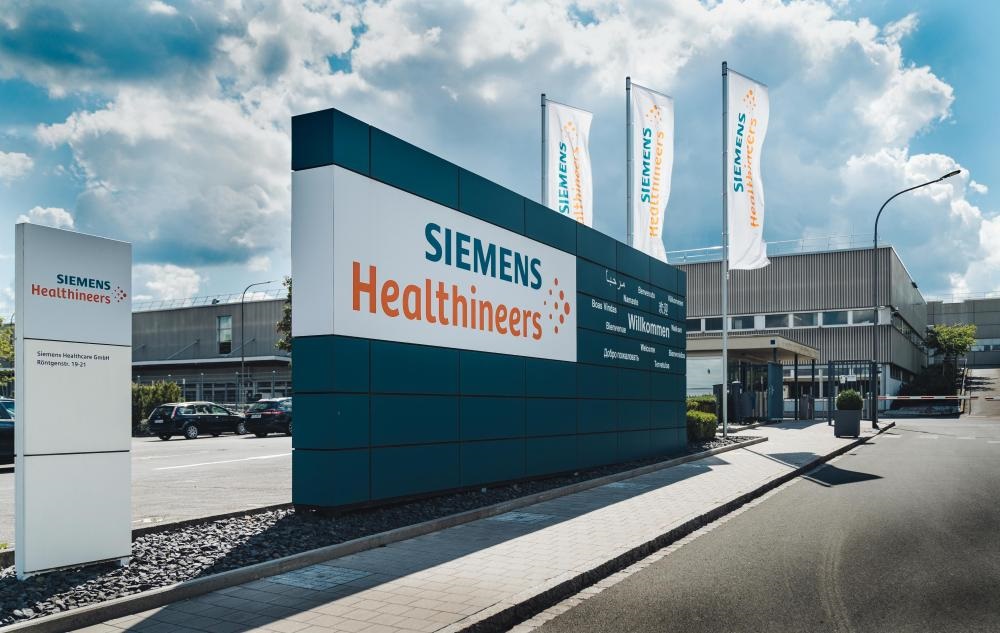
Siemens Healthineers advocates for streamlined reimbursement policies to accelerate AI integration in healthcare. Through testimony before the Senate Committee on Finance, the company underscores the transformative potential of AI in improving patient outcomes and reducing healthcare costs. However, inconsistent reimbursement practices present a significant barrier to widespread adoption. Siemens Healthineers emphasizes the urgent need for policymakers to establish a cohesive reimbursement framework, fostering innovation and equitable access to AI-driven healthcare solutions.
Siemens Healthineers, a renowned global leader in medical technology with extensive expertise in harnessing artificial intelligence (AI) for healthcare, has taken a stand before the Senate Committee on Finance to discuss the intricate dynamics surrounding the integration of AI in healthcare systems. At the core of today’s hearing, titled “Artificial Intelligence and Health Care: Promise and Pitfalls,” lies a critical examination of the utilization of algorithms and AI frameworks within the healthcare domain. The focal point of Siemens Healthineers’ testimony revolves around a significant impediment hindering the widespread adoption of AI in healthcare: reimbursement protocols.
Drawing upon over two decades of relentless dedication to advancing AI within medical technology, Siemens Healthineers boasts an impressive portfolio comprising more than 80 FDA-cleared products embedded with AI components, showcasing pioneering breakthroughs aimed at enhancing patient care.
Representing Siemens Healthineers at this pivotal juncture is Peter Shen, serving as the head of Digital & Automation for North America. Shen brings with him a wealth of experience, having previously testified before the House of Representatives Committee on Energy and Commerce in November 2023, where he elucidated upon the company’s cutting-edge AI technology, stringent quality assurance and regulatory procedures, as well as robust protocols designed to safeguard patient data through de-identification measures.
Shen articulates, “The Centers for Medicare & Medicaid Services have recognized the transformative potential of artificial intelligence in expanding access to healthcare, elevating patient outcomes, and curbing overall costs associated with the Medicare program. We concur with this assessment, yet our observations underscore a glaring obstacle impeding the seamless integration of AI: the inconsistency in reimbursement practices.” He underscores the imperative need for a streamlined, predictable reimbursement framework to incentivize innovation, facilitate widespread adoption, and ensure equitable access to AI-driven technologies.
Siemens Healthineers’ testimony underscores the pivotal role played by AI in revolutionizing healthcare delivery. With its extensive repertoire of AI-infused products, the company has been at the forefront of driving transformative change within the healthcare landscape, paving the way for enhanced diagnostic accuracy, personalized treatment regimens, and optimized patient outcomes.
However, despite the myriad benefits offered by AI, the journey towards its comprehensive integration into mainstream healthcare practices is fraught with challenges, chief among them being the intricate maze of reimbursement intricacies. The lack of a uniform reimbursement framework not only serves as a deterrent to innovation but also exacerbates existing healthcare disparities, impeding access to cutting-edge AI technologies for underserved populations.
Siemens Healthineers emphasizes the urgent need for policymakers to address this critical issue by spearheading initiatives aimed at standardizing reimbursement practices for AI-driven healthcare solutions. A cohesive reimbursement strategy, characterized by transparency and consistency, is imperative to incentivize investment in AI research and development, foster innovation, and ultimately, expedite the translation of AI advancements into tangible clinical benefits for patients worldwide.
Furthermore, Siemens Healthineers underscores the importance of fostering a collaborative ecosystem wherein stakeholders across the healthcare spectrum – including policymakers, regulators, healthcare providers, and industry leaders – converge to chart a collective path forward in harnessing the full potential of AI to address the multifaceted challenges confronting modern healthcare delivery.
Siemens Healthineers’ testimony underscores the imperative for policymakers to prioritize the establishment of transparent and consistent reimbursement policies for AI-driven healthcare solutions. By removing barriers to adoption, such as payment inconsistency, policymakers can unleash the transformative potential of AI in healthcare. Through collaborative efforts, stakeholders can navigate the complexities of reimbursement policy, driving innovation, and ensuring equitable access to cutting-edge healthcare technologies. The time for decisive action is now, as we endeavor to harness AI’s full potential to enhance patient outcomes and reshape the future of healthcare delivery.


Leave a Reply